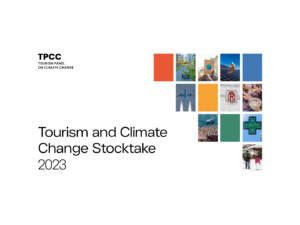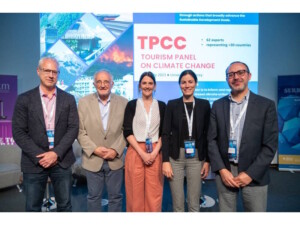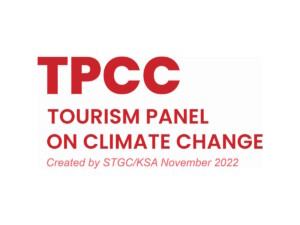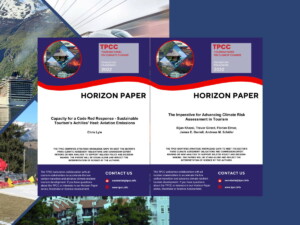Revealed for COP 28: Global tourism’s first climate change stocktake report
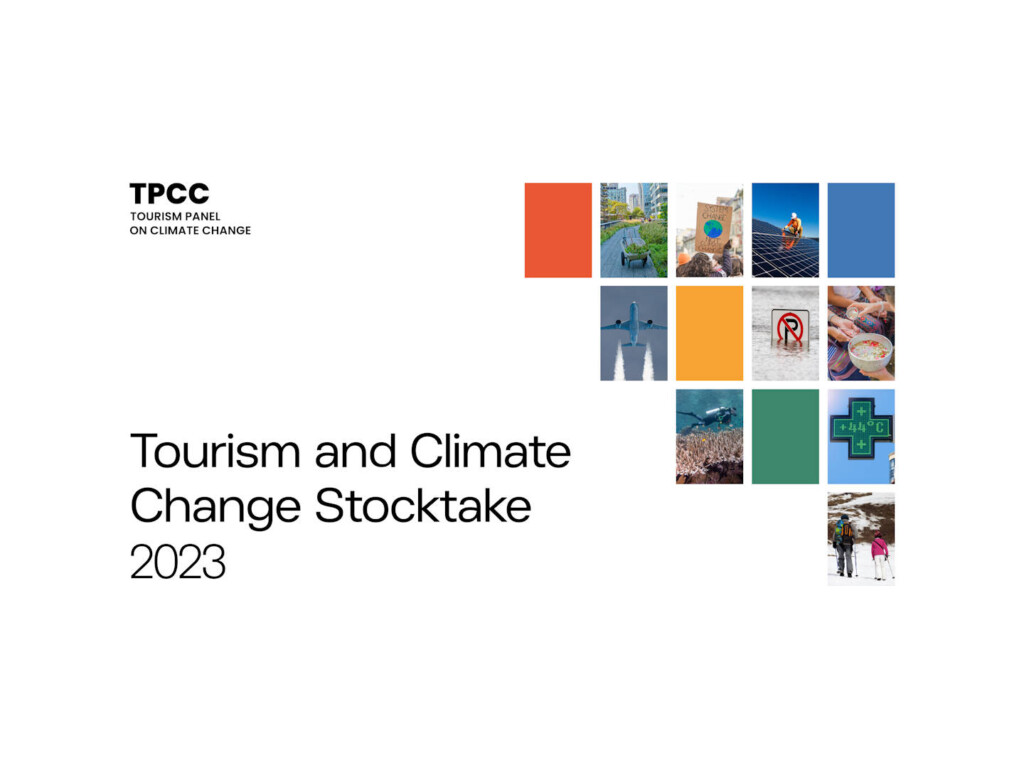
The first Tourism and Climate Change Stocktake report has been released by the Tourism Panel on Climate Change (TPCC) concurrent with the UN COP 28 Climate Conference. [Download the Stocktake.]
Its 24 key findings aim to support policy makers and the tourism industry to accelerate planning and investment toward low carbon and climate resilient global tourism.
The report finds that many countries support tourism because of its integral role in contributing to economic development.
There is limited evidence that tourism growth has been decoupled from increases in greenhouse gas emissions. Tourism now contributes directly and indirectly about 8 – 10% of global emissions.
Professor Daniel Scott, University of Waterloo, Canada said: “In 2023, the world witnessed an extraordinary succession of climate records so that we no longer need to imagine the impacts of climate change on tourism. Transformational change to climate resilient tourism is our collective responsibility and compels decisive leadership by the tourism community. The future of global tourism remains ours to decide, for there can be no sustainable tourism if we fail on climate.”
Professor Susanne Becken, Griffith University, Australia said: “Travel and tourism is incredibly important, not only economically but socially as well. However, with our planet being in an acute state of crisis it has become essential to identify and promote those types of tourism that can continue to deliver genuine benefits, whilst retreating from ‘tourism fossils’ that are simply not compatible with a low carbon and climate resilient future.”
Professor Geoffrey Lipman, President of SUNx Malta said: “It’s time to move further and faster than the hollow promises made for three decades in the future. That future is already here in increasingly devastating global weather patterns. Tourism needs to respond to this now and to recent IPCC calls for GHG emissions to peak by 2025.”

The ‘Stocktake’s’ key findings include:
- Tourism is growing faster than the global economy (except during COVID-19) trending toward longer distance and more emission intensive travel.
- Tourism accounts for 8 – 10% of global emissions.
- Global tourism emissions are heavily concentrated in high-income outbound markets and destinations.
- Tourism, air travel, and cruise tourism are not on track to achieve their 2030 emission reduction goals.
- Air travel remains the most difficult component of global tourism to realise deep emission reductions.
- The greenhouse gas emission intensity of hotel operations is gradually improving in some regional markets but without acceleration and expansion globally, will fall short of their 2030 emission reduction target.
- Consumer behaviour and tourism marketing needs to shift away from the highest-emitting forms of tourism, a necessary step to achieve GHG reduction targets.
- Compounding climate hazards are anticipated to curtail tourism to many climate vulnerable countries where tourism represents a large part of the economy.
- Some forms of tourism will not be viable at some destinations because of accelerating climate hazards and limits to adaptation measures. Examples: ski tourism at low elevations, beach tourism in highly erodible coastlines, and some nature-based tourism.
- There are important climate justice implications from unequal distribution of tourism emissions and potential impacts of climate hazards.
- In low-income countries, climate and tourism risks overlay many other factors, such as poverty and public sector debt, requiring climate resilient policy making and climate finance.
- Tourism policy is not yet integrated with global or national climate change frameworks, despite an increase in sectoral climate pledges. Most national tourism policies or plans give limited consideration to climate change.
- Governments and international development assistance continue to invest in climate-vulnerable tourism infrastructure that is linked to high GHG emission intensity.
- Training and tourism education programs remain very limited even as research and scientific capacity to inform evidence-based climate action in tourism has increased substantially.
The TPCC Tourism and Climate Change Stocktake was released on Monday, December 11. The full report and summary for policy makers are available at this link.


